*
75 years ago, at the onset of the "Golden Age of Broadway," songs from the theatre dominated the radio and pop charts. Popular singers were just that — singers — unlike the multi-hyphenate singer-songwriter-musician-producer-moguls that have mostly replaced them in the years since. Back in the day, when these singers were making a record, the season's crop of new theatre music was one of the first places they (or their record label) might look. All of that started to change about 50 years ago, and the result has been a diminished role in our culture for showtunes, musicals and theatre itself. Still, some songs have managed to break through in the last 50 years since 1964 — when hits from both Funny Girl and Hello, Dolly! scaled the Billboard charts.
Click through to read my selections for the top ten show tunes to make the pop charts since 1964.
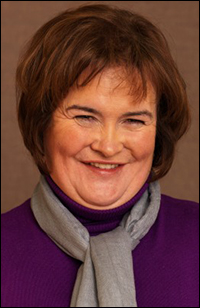 |
||
| Susan Boyle |
While I haven't used any kind of criteria for this list, such as the song needing to be recorded around the time of the original production of the musical, "I Dreamed A Dream" is penalized in this case for the 24-year lag between Les Misérables opening in London in 1985 and the song's 2009 ascent of the charts. True, Patti LuPone's original London cast recording did get excerpted into a single release and Neil Diamond covered it around the time of the show's Broadway opening, reaching #13 on the "Adult Contemporary" chart, but it was Susan Boyle's success singing "I Dreamed A Dream" on "Britain's Got Talent" in 2009 that sent LuPone's original version soaring on the Billboard Hot 100. Pre-orders for Boyle's recording broke Amazon records. If television has hurt the popularity of theatre, there seems to be a way to pay it back!
 |
||
| Murray Head |
"One Night In Bangkok" is strange hybrid of rap and ABBA that was originally recorded by British singer and actor Murray Head for the pre-stage production concept album of the musical Chess. The unique fusion of elements comes together under the intensely 1980s feeling of the track and the sardonic lyrics prevent it from tipping over completely into camp — or perhaps they give it the final shove. Either way, Head's single of the song is an irresistible toe-tapper and managed to climb to #3 on the Billboard Hot 100 in 1985. Unfortunately, this was not enough to make a success of the Broadway production of Chess in 1988.
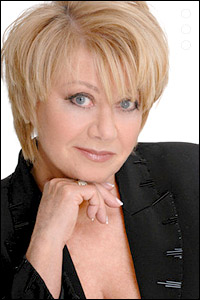 |
||
| Elaine Paige |
It's hard to think of a more popular stand-alone showtune of the last few decades than "Memory" from Cats. There have been many, many successful recordings, although my favorite, hands down, is Betty Buckley's ethereal, yet gutsy, original Broadway cast recording. Prior to that, Elaine Paige's London recording netted a single which made it to the U.K. Top 10 and then Barbra Streisand had a hit on the U.S. charts with the single version from her album (of the confusingly similar name) "Memories." The song's power isn't limited to female performers, either; Barry Manilow's recording was also a hit.
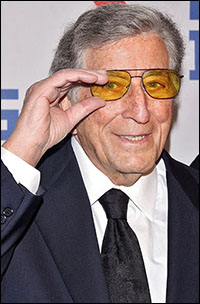 |
||
| Tony Bennett |
||
| Photo by Joseph Marzullo/WENN |
Leslie Bricusse and Anthony Newley had a hit with (several singers' recordings of) their song "What Kind Of Fool Am I?" from their hit show Stop The World – I Want To Get Off. Although their subsequent musical, The Roar of the Greasepaint – The Smell of the Crowd, was less well received, the success of Tony Bennett's recording of that show's big ballad, "Who Can I Turn To (When Nobody Needs Me)," contributed to the piece eking out a decent run on Broadway.
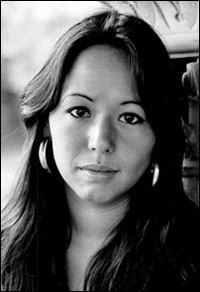 |
||
| Yvonne Elliman |
Before Andrew Lloyd Webber and Tim Rice's rock opera, Jesus Christ Superstar, opened on stage on the West End or Broadway, it had a successful release as a concept album, resulting in hit singles of both "Superstar" (sung by Murray Head) and "I Don't Know How To Love Him" (sung by Yvonne Elliman). Head's recording of the title tune charted several times in 1970 and 1971, eventually peaking at #14 on the Billboard Hot 100, and Elliman's single of "I Don't Know How to Love Him" climbed the chart too, although it faced competition from recordings of the song by Helen Reddy (who had a major hit with it) and Petula Clark.
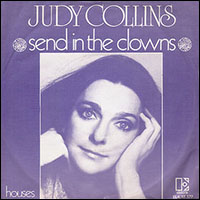 |
Although Stephen Sondheim and Hugh Wheeler's A Little Night Music opened on Broadway in 1973 and "Send In The Clowns" immediately became a cabaret staple for Bobby Short (and was recorded on Frank Sinatra's 1973 album "Ol' Blue Eyes Is Back"), it wasn't until Judy Collins released a single of the song in 1975 that it became a hit, spending 11 weeks on the Billboard Hot 100 and eventually winning the 1976 Grammy for "Song Of The Year." The Grammy Award led to a return to the charts, where "Send In The Clowns" this time stayed for 19 weeks, reaching #19. It became one of the most commonly performed ballads in the world and years later Barbra Streisand gave it another spin on the charts, thanks to the success of her "The Broadway Album." Who'd have thunk it? The master artist Stephen Sondheim is also Broadway's biggest hit record man.
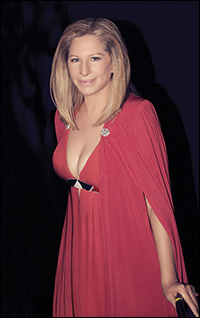 |
||
| Barbra Streisand |
In the real-life fairy tale story of Barbra Streisand's career, "People" is an early highlight. At the time she released "People," Streisand was opening on Broadway in the blockbuster musical Funny Girl, (and would soon go on to star in the subsequent hit film adaptation, for which she would win an Academy Award). She sang many great songs in Funny Girl, but her Act One ballad, "People" provided her with her first Top Ten single, a major accomplishment in her already-burgeoning recording career. It was instantly established as Streisand's signature song and has served her well over the many decades of her supremacy.
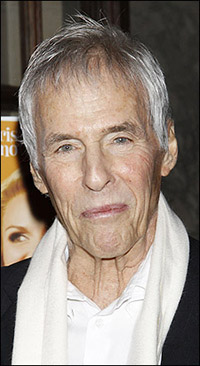 |
||
| Burt Bacharach |
||
| Photo by Joseph Marzullo/WENN |
The Act Two number from Promises, Promises is also a fondly remembered pop hit of the period, and it's no surprise. The score to Promises, Promises was written by two of the giants of pop music, Burt Bacharach and Hal David. The original cast album (with Jerry Orbach and Jill O'Hara) was popular as was the London version (with Tony Roberts and Betty Buckley) and single versions of "I'll Never Fall In Love Again" were successfully released by Gene Pitney, Ella Fitzgerald and even Bacharach himself. It was however, (Bacharach muse) Dionne Warwick's single that climbed high on the charts and remains an indelible piece of both Broadway and Pop Music history.
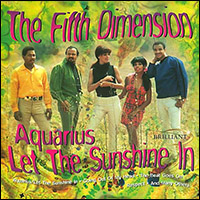 |
Superstar soul quintet The 5th Dimension's medley of "Aquarius" and "Let The Sunshine In" from Hair capitalized not only on the enormous success of the musical, but more significantly on the watershed moment in history for which the show's impact was perfectly timed. It was an era when the revolution of rock and roll and rhythm and blues was echoing the major societal upheaval occurring throughout the world, and Hair was a Broadway show that didn't merely echo that; Hair in its way and particularly through the monumental success of "Aquarius"/"Let The Sunshine In," was part of that upheaval. Accordingly, it was #1 on the Billboard Hot 100 for six weeks and is listed as #57 on Billboard's "Greatest Songs of All Time."
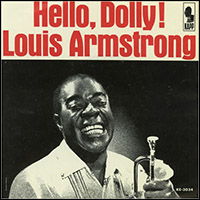 |
If the era of showtunes as pop songs was already coming to an end in 1964, Louis Armstrong saw it off in style with his mega-hit recording of the title song from Broadway smash Hello, Dolly!, displacing the Beatles from the top of the charts. This was a major comeback for Armstrong, whose jazz had fallen out of fashion with the onslaught of rock and roll and who subsequently continued to find success with special "Louis" versions of theatre songs. The Broadway and worldwide productions of Hello, Dolly! certainly benefited from this as well, enjoying record-breaking runs in cities around the globe, thanks in part to the song's popularity. Over the years, "Hello, Dolly!" was used to promote everything from political candidates to lunch meats and it's clear "Dolly" is staying where she's at: In our hearts.
(Ben Rimalower is the author and original star of the critically acclaimed Patti Issues. Read Playbill.com's coverage of the solo show here. Visit him at benrimalower.com and follow @benrimalower on Twitter.)










